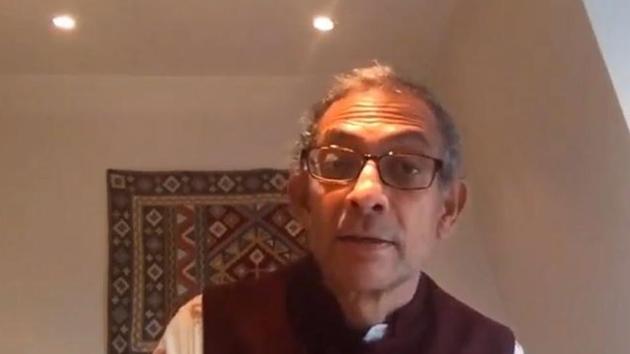Next Budget should focus on bolstering economic sentiment: Nobel laureate Banerjee
Banerjee said that India’s initial policy response to the Covid-19 pandemic was focused on ensuring that the financial sector, especially banks, did not see a worsening of their pre-Covid crisis.
Nobel laureate Abhijit Banerjee on Thursday said the Indian economy needs a massive confidence boost from the government in the next Budget at a time when spending has declined sharply due to the Covid-19 pandemic, and called for a “strong we-will-do-what-it-takes message” in the next Union Budget.

The economist added that with the pandemic-induced economic slowdown — “we’re going to end the year about 10% short of where we were” — what was needed was “a demand bounce” and a “boom on the supply side”. “If people gain confidence that the economy will recover, then they will indeed start spending,” Banerjee said at the 18th Hindustan Times Leadership Summit.
“Even on the supply side... we need a boom to undo the stickiness.”
“I think the things that would have a lot of visibility, that would make people think that Achhe Din (good days) is about to re-emerge [will help]. Infrastructure projects do have visibility, and people will start to think that something is happening. We’re in a state of a bit of a paralysis and getting out of that paralysis [will require] a government showing that it is focused on development.”
Banerjee won the Nobel Prize in economics in 2019 with Esther Duflo and Michael Kremer for their experiment-based approach to transform development economics.
Banerjee said that India’s initial policy response to the Covid-19 pandemic was focused on ensuring that the financial sector, especially banks, did not see a worsening of their pre-Covid crisis. By delaying loan repayments and infusing capital into banks, there have been significant achievements on this count, Banerjee said. While this was necessary at the time, it is not enough for two reasons, he added. Unless economic momentum is restored, the problem of loan repayments will keep coming back.
“I think people understand that you have to bail out banks, but I don’t think it excites everybody. Loan write-offs were good, but now that loans are coming due, people.. would really like an assurance that the growth is going to be restored and the government will do whatever it takes. [The government should] start sending signals that it has a commitment to growth. That’s the only way to get people out of this state of not spending, not investing...” he said.
Banerjee said the pandemic has brought to the fore the crisis in our social security systems, which is tied to a person’s domicile, and therefore cannot cater effectively to migrant workers. “We have never really confronted the magnitude of the integration of the Indian economy that has happened.”
“Our urban housing policy does not allow a migrant worker earning even ₹400-500 per day to afford decent low-cost housing in big cities. This forces migrant workers to keep going back to the village and waste opportunities while working in cities,” he added.
Banerjee underlined the need for collecting more information on migrant workers and vulnerable sections of the population, but warned against putting too much faith in knee-jerk solutions. We do not know whether something like an urban employment guarantee programme would work in India even though it sounds like a good idea, he said. Starting with even a very small cash transfer programme, which he described as “Universal Ultra Basic Income”, could mark the beginning of the pipeline of a more holistic welfare infrastructure. But this should not come at the cost of dismantling the food security programme at the current juncture, he warned. He underlined the importance of looking at the ongoing Centre-state conflict as something still in motion, rather than a definite turn towards recentralisation. “We have to see that game play out... the economy is not delivering as much as it was and there is a sense that the states are wasting money...but I do think there are more rounds in this game to be played,” he said.



